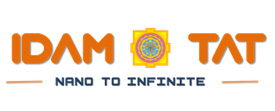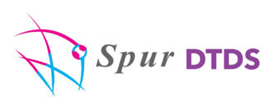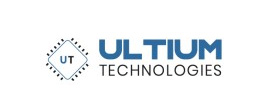Issue & Transfer of Shares & Debentures
Handling share or debenture transfers? We assist with issuing and transferring shares, completing filings to maintain clear and compliant shareholder records.

Issuing and transferring shares and debentures is an important part of corporate governance and finance. Whether your company is raising capital through the issuance of new shares or managing the transfer of existing shares, these processes must comply with strict legal and regulatory standards set by the Companies Act and SEBI (Securities and Exchange Board of India).
At Benchmark, we specialise in helping you understand the complex requirements involved in issuing and transferring shares and debentures. Our team ensures that all documentation, filings, and compliance steps are handled efficiently, reducing the potential risks and improving the transparency for shareholders and debenture holders.
When transferring shares or debentures, it's essential to follow the correct procedures, including the execution of transfer deeds (Form SH-4) and conforming to any restrictions outlined in a company's Articles of Association (AOA). Failure to comply can result in financial and legal repercussions, including delays in transfers or disputes over ownership.
This guide will cover the complete process for issuing and transferring shares and debentures, outlining the necessary documentation, compliance steps, and regulatory filings.
Why Choose Benchmark?
Benchmark is a trusted partner for businesses seeking expert guidance in the complex processes of issuing and transferring shares and debentures. Our extensive experience and commitment to regulatory compliance ensure a smooth and efficient service. Here is why you should choose Benchmark for your company's share and debenture management:
- Expertise in Regulatory Compliance
- Comprehensive Documentation Management
- Accurate Valuation and Pricing Services
- SEBI & RoC Filing Expertise
- Efficient Allotment & Issuance Process
- Transparent Communication with Investors
- Board Approval and Governance Oversight
- Expertise in Transfer Deeds & Stamp Duty Compliance
- Timely Update of Registers
- Accurate Tax Calculations
- Customised Solutions for Each Business
- Proven Track Record in Optimising Market Timing
Our Services
At Benchmark, we provide a range of services to ensure the smooth and compliant execution of share and debenture issuance and transfers. Here is a detailed overview of our services:
| Service | Description |
|---|---|
Drafting & Documentation |
We handle the preparation of essential documents, including the prospectus, offer letters, application forms, and board resolutions, needed for issuing shares or debentures. |
Valuation & Pricing |
We conduct fair value assessments for unlisted companies, determining accurate pricing for shares or debentures to ensure full compliance with pricing guidelines. |
Regulatory Filings (RoC & SEBI) |
We manage all necessary filings, such as Form PAS-3 with the Registrar of Companies (RoC), and ensure adherence to SEBI regulations for listed companies. |
Pre-Emption Rights Management |
We safeguard existing shareholders' rights, making sure they are honoured before offering shares to external investors, all in line with the Articles of Association. |
Allotment & Issuance |
We oversee the entire allotment process, from issuing share or debenture certificates to updating the Register of Members or Debenture Holders. |
Transfer Deeds & Stamp Duty |
We prepare and execute transfer deeds (Form SH-4) and handle applicable stamp duties to ensure a compliant and smooth transfer process. |
Board Approval for Transfers |
We assist in securing board approval for share or debenture transfers, meeting all necessary legal requirements for a seamless transaction. |
Capital Gains Tax Calculation |
We provide precise calculations for any capital gains tax arising from transfers, ensuring compliance with current tax laws. |
Register Updates |
We update the company's Register of Members and Register of Debenture Holders to accurately reflect the issuance or transfer of shares or debentures. |
Documents Required
Here is the list of documents required for both issuing and transferring shares and debentures.
Documents For Issuance of Shares & Debentures:
| Documents | Description |
|---|---|
| Offer Letters | For private placements, providing details to potential investors. |
| Application Forms | For applicants subscribing to shares or debentures. |
| Validation Report | Required for unlisted companies to determine fair value and pricing of shares. |
| Form PAS-3 | Return of allotment filed with the Registrar of Companies (RoC). |
| SEBI Compliance Documents | For listed companies, ensuring adherence to SEBI regulations. |
| Share/Debenture Certificates | Issued to investors after allotment. |
| Updated Register of Members | Reflecting the allotment of shares or debentures. |
Documents For Transfer of Shares & Debentures:
| Document | Description |
|---|---|
| Transfer Deed (Form SH-4) | Legally executed transfer deed for the transfer of shares or debentures. |
| Original Share/Debenture Certificates | The original certificates that are being transferred. |
| Stamped Transfer Deed | Ensuring payment of the applicable stamp duty for the transfer. |
| Identification Documents of Transferor & Transferee | PAN card, Aadhaar, or other identification as required. |
| Updated Register of Members | To reflect the transfer of shares. |
| Updated Register of Debenture Holders | To reflect the transfer of debentures. |
| Capital Gains Tax Documentation | Proof of tax calculation and payment for any applicable capital gains arising from the transfer. |
Process for Issuance of Shares & Debentures
To streamline the issuance procedure, it is essential to follow the necessary steps in the correct order. Below is a clear, step-by-step guide to ensure the process is carried out in a right manner.
Step 1: Board Resolution
We help you start the process with a board resolution. This is where your company’s directors officially approve issuing new shares or debentures.
Step 2: Drafting of Documentation
Next, we prepare important legal documents, like share allotment letters and agreements. This will ensure everything is recorded properly and follows legal requirements.
Step 3: Valuation & Pricing
We assist in determining a fair price for the shares or debentures. One of our valuation expert assesses the company's financials to determine the right price.
Step 4: Pre-Emption Rights
Before issuing any new shares, the existing shareholders may have the right to buy them first. So, we guide you on handling this to avoid any possible conflicts.
Step 5: Filing of PAS-3
Every company must report new share allotments to the government by filing Form PAS-3. We take care of this filing to keep you compliant.
Step 6: Issuance of Certificates
Once all the approvals are done, we issue share or debenture certificates to investors. These documents confirm their ownership and legal rights over the securities.
Step 7: Communication with Investors
We help you update investors about their new shares or debentures. Having a clear communication builds trust and ensures they understand their rights and benefits.
Process for Transfer of Shares & Debentures
To have a seamless transfer of ownership from one party to another, the Transfer of Shares and Debentures is a systematic procedure regulated by legal, regulatory, and company-specific rules. Every stage is essential to preserving compliance and openness, from the completion of transfer documentation to the last correspondence with stakeholders. The following steps outline the key stages involved in executing a successful and legally compliant transfer.
Step 1: Execution of Transfer Deed (Form SH-4)
The process begins with the preparation and execution of a transfer deed, which is the formal document required for transferring shares or debentures. The deed, known as Form SH-4, must be correctly filled out, signed by both the transferor and transferee, and affixed with the appropriate stamp duty as per the Stamp Act.
Step 2: Board Approval
After the execution of the transfer deed, a Board Meeting is held to approve the transfer. This step ensures that the transfer complies with the company's Articles of Association (AOA) and any internal regulations. The Board's resolution is a critical part of the process as it gives formal authorization for the transfer to proceed.
Step 3: Verification of Documents
Before moving forward, the documents related to the transfer, including the transfer deed and any additional paperwork, are thoroughly verified. This step ensures the authenticity of the documents and that they meet all legal and regulatory requirements.
Step 4: Updating Registers
The business updates its Register of Members and, if relevant, the Register of Debenture Holders after the transfer is authorised and the supporting documentation is confirmed. This update ensures that the registers stay correct and current for legal compliance by reflecting the new ownership and documenting the transfer from the transferor to the transferee.
Step 5: Capital Gains Tax Calculations
If applicable, capital gains tax is calculated based on the transfer value of the shares or debentures. The seller (transferor) may be liable to pay this tax if a profit has been gained from the sale of the shares or debentures. This step involves determining the cost basis of the shares, the selling price, and applying the relevant tax laws to compute the taxable gain.
Step 6: Issuance of New Certificates
The corporation issues new share or debenture certificates to the transferee and cancels the previous certificates held by the transferor after updating the registries. The new certificates are a necessary document for the transferee to exercise their rights as a shareholder or debenture holder and serve as proof of ownership.
Step 7: Communications to Stakeholders
Both the transferor (seller) and the transferee (buyer) are officially notified that the transfer has been completed. This communication confirms that the transfer has been recorded in the company’s registers, new certificates have been issued, and the process is finalised.
Non-Compliance Issues
Non-compliance in the issuance and transfer of shares and debentures can lead to significant legal and financial penalties, disrupt business operations, and damage a company's reputation. Here are some of the key non-compliance risks associated with these processes:
- Failure to File PAS-3 with the Registrar of Companies (RoC) on time.
- Non-compliance with SEBI Guidelines for listed companies.
- Improper Valuation and Pricing leading to overpricing or underpricing of shares in unlisted companies.
- Violation of Pre-Emption Rights of existing shareholders.
- Inaccurate or Incomplete Documentation, including board resolutions, offer letters, or prospectuses.
- Non-adherence to Transfer Deed Requirements (Form SH-4) during the transfer of shares or debentures.
- Failure to Pay Applicable Stamp Duty on transfer deeds.
Additional Considerations for Issue & Transfer of Shares & Debentures
Based on the document you provided, here are some unique factors to consider during the process of issuing and transferring shares and debentures:
| Considerations | Details |
|---|---|
| Market Timing | Identifying optimal market conditions to maximise subscription and investor interest. |
| Shareholder communication | Ensuring transparent communication with existing shareholders about issuance and transfer terms. |
| SEBI Compliance for Listed Companies | Adhering to all SEBI guidelines to ensure seamless issuance and transfer for listed companies. |
| Rights of Debenture Holders | Protecting the rights of debenture holders during issuance and transfers, ensuring fair treatment. |
| Transfer Restrictions in AOA | Reviewing and complying with any transfer restrictions outlined in the Articles of Association. |
Conclusion
Issuing and transferring shares and debentures are important processes that require careful planning, compliance with legal frameworks, and transparent communication with stakeholders. At Benchmark, we ensure that every step, from documentation to regulatory filings, is handled with the highest level of professionalism and accuracy. Our expertise in regulatory compliance, pricing, and seamless execution makes us the ideal partner for managing your company's share and debenture needs.
Ready to simplify your share and debenture management? Contact Benchmark today to ensure your company stays compliant, efficient, and well-positioned for growth.
Get in touch now to discuss how we can support your business.
FAQs
Can shares be transferred to non-resident individuals or foreign entities?
Yes, shares can be transferred to non-resident individuals or foreign entities, but this process involves additional regulatory approvals, such as compliance with the Foreign Exchange Management Act (FEMA) and possibly Reserve Bank of India (RBI) approvals.
What happens if my company fails to issue shares within the prescribed time?
Failure to issue shares within the prescribed time, such as failing to file the PAS-3 form within 30 days of allotment, can result in penalties imposed by the Registrar of Companies (RoC), as well as potential legal action from shareholders.
Do debenture holders have any rights in the management of the company?
No, debenture holders are creditors and do not have ownership rights or voting power in the company's management decisions. They are entitled to interest payments and the return of their principal amount when the debenture matures.
4. Is stamp duty applicable on the transfer of shares?
Yes, stamp duty is applicable on the transfer of shares and is calculated based on the value of the shares being transferred. This duty must be paid to ensure the transfer deed is legally valid.
Are there any restrictions on the transfer of shares in a private company?
Yes, private companies often have restrictions in their Articles of Association (AOA) regarding the transfer of shares. These restrictions typically require board approval and sometimes give existing shareholders the right of first refusal




































